How Ramadan fasting and fitness can run together
- Published
Ramadan and exercise
Ramadan is usually a month of quiet contemplation for millions of Muslims around the world.
Fasting from food and water during daylight hours, it is a period of deep introspection and inner peace.
But for some physical fitness still plays a major role, and they say their exercise and spiritual journeys run together on the same pathway.
Pilates instructor Sahir Ahmed-Evans believes there is a natural connection between fasting and fitness.
"Fasting is a discipline," she said.
"We go without food, water, we're challenging our bodies. We stay committed and consistent for the 30 days.
"It's exactly the same with exercise… you have to be committed, you certainly have to have discipline.
"And to get results you're going to have to be consistent. I think they just go hand in hand".
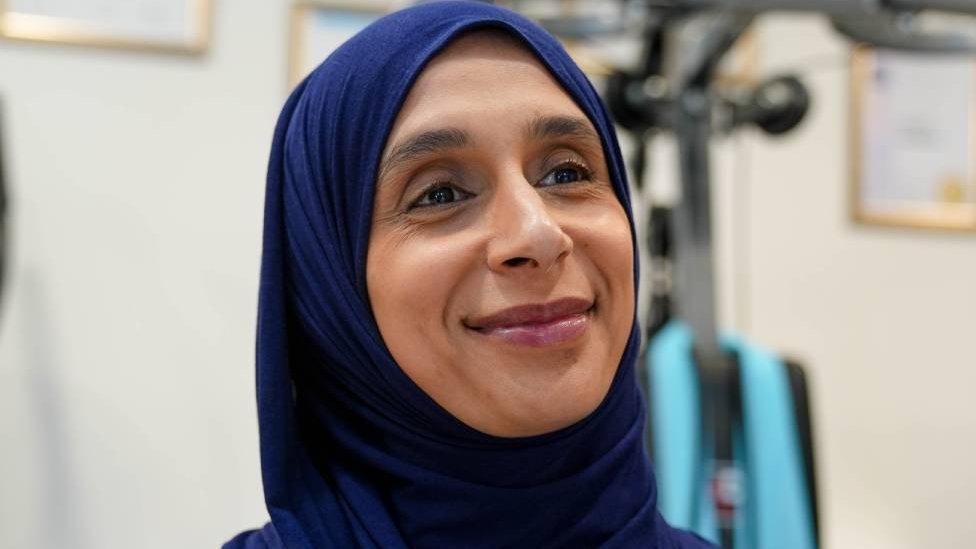
Sahir's tips: Don't aim for personal bests, focus on maintaining, reduce workout intensity on a fasting day, keep cardio to just before opening fasting
Sahir, 46, the owner of SAE Pilates and Fitness Studio in Cardiff, pursued a lifestyle and career in health and fitness after a period of ill health, and said she hit a point when she had to make a change.
Now, as a qualified pilates instructor, she coaches other women as a passionate advocate of women's health and wellness.
"In Ramadan, not only are we working towards our spiritual health, I feel that ties in with your emotional, mental and physical health.
'Deep inner strength'
"It's a complete overhaul to set you on a new programme for the rest of the year. As much as it's about spiritual improvement; improving our relationship with God, ourselves and others, it's improving us as whole.
"We can get complacent, and life takes over, but Ramadan resets it so that you realise that you are capable of a lot. If you're capable of fasting… then that means you have a deep inner strength, to take into your workouts and into life".
Ramadan ends this week, and many Muslims are exempt from fasting, particularly when it's deemed healthier not to do so. This includes children, the elderly, people who are unwell or who may be travelling, or those menstruating or breastfeeding.
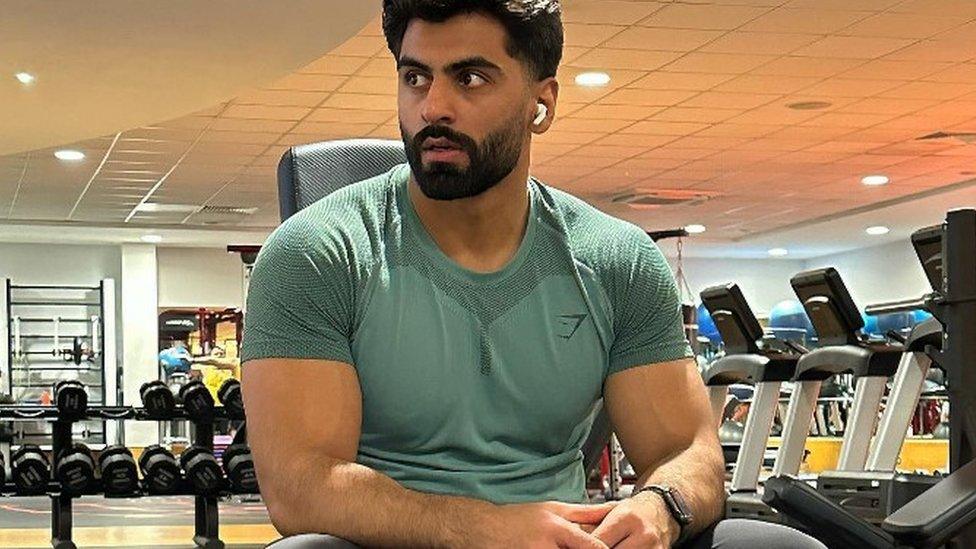
"My spiritual health is very closely related to my mental and physical health," says Dr Nabeel Illahi
But for those who have been fasting, Dr Nabeel Illahi, 29, said they could get a number of health benefits.
"As the eating window is shorter, this usually leads to consuming lower calories throughout the day overall, resulting in weight loss, so fasting can help with obesity," said Dr Illahi, who is a GP in training.
"Obesity is also an independent risk factor for type 2 diabetes and heart disease, so it would help in reducing your chances of getting any of these".
"Evidence also shows fasting reduces inflammation in the body, and we know increased inflammation is linked with cancer, heart disease and more, so there are a number of health benefits linked with fasting".
The links to health benefits have made fasting popular worldwide, even among those who are not Muslims.
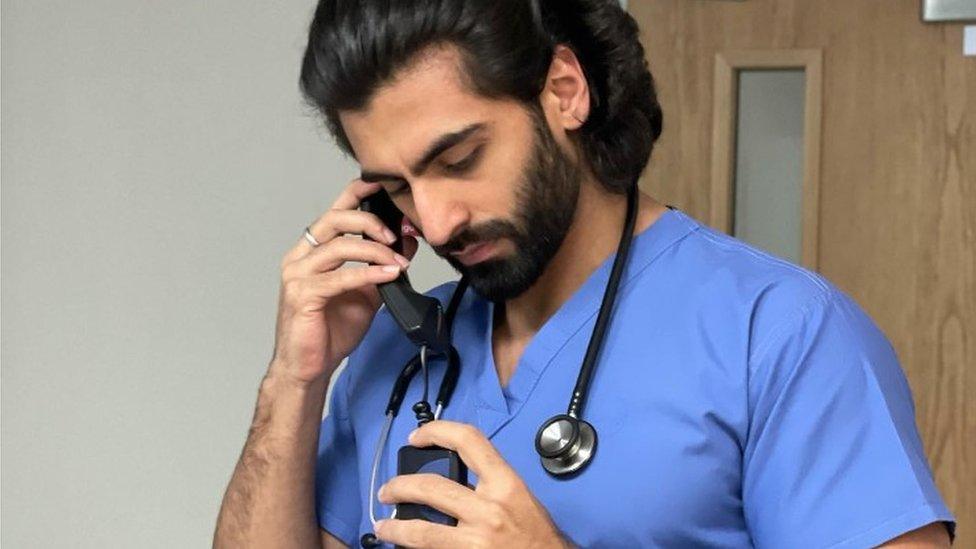
Nabeel's tip: "People want to know about fancy stuff but it's simple - you need to be drinking two to three litres of water at regular intervals, throughout the evening and night"
For Dr Illahi, who also makes fitness content online, the spiritual aspect of the month is a boost for his fitness.
"My spiritual health is very closely related to my mental and physical health, because I've noticed when I feel close to God, then I feel better with my mental health.
"I'm able to deal with my challenges better. My mood is better and I actually feel like working out".
'Healthy continuous sleep'
Routines can be disrupted for some people during the month, due to the pre-dawn meal and night prayers.
Dr Illahi said he noticed people who may struggle through the day are suffering from a lack of sufficient sleep.
"You need to be trying to get at least seven to nine hours of healthy continuous sleep even in the month of Ramadan," he said.
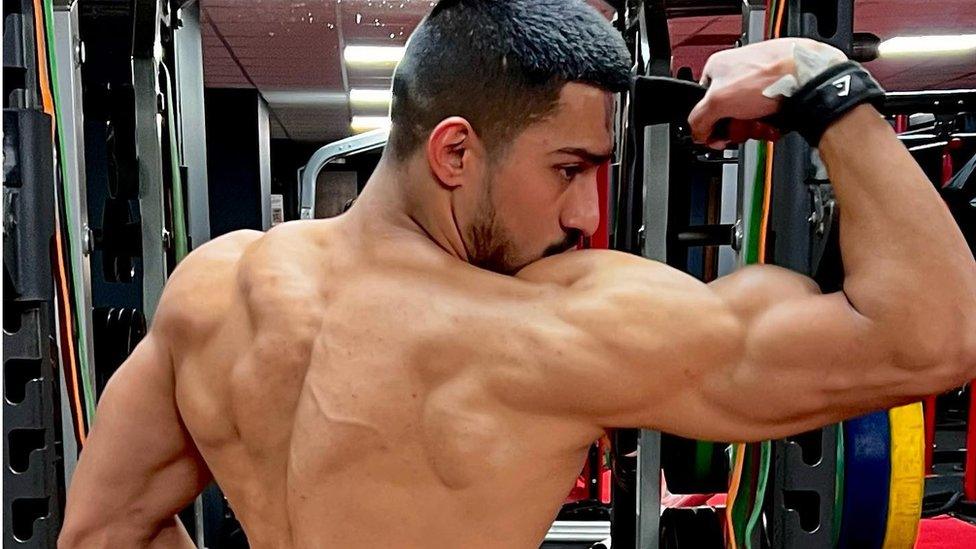
"Religion to me is the most important thing at the end of the day," says Amin Ullah
In the run-up to competing in his first bodybuilding competition, Amin Ullah, 25, has been working out twice a day, before and after breaking his fast.
"If I wasn't competing I wouldn't be training as vigorously as I have been, with the same intensity," said Amin, from Barry, Vale of Glamorgan.
He described stopping fasting as like "losing a sense of self, because if I don't train I don't feel right".
He has been training for eight years on and off, but this year has been his first in maintaining a workout routine through Ramadan.
"Religion to me is the most important thing at the end of the day," he said.
"This year I've tried to make no excuses, I still want to perform my five daily prayers and fast every day, while working out and being as productive as I can.
"And this Ramadan I've been able to make the most of both religion, and just my day-to-day life, to the highest potential I can".
- Published1 April 2023
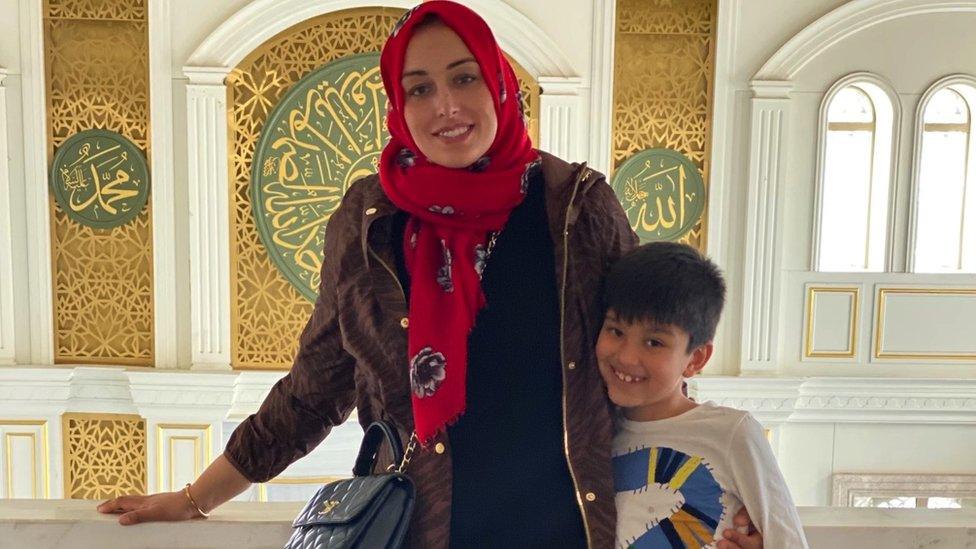
- Published29 April 2022
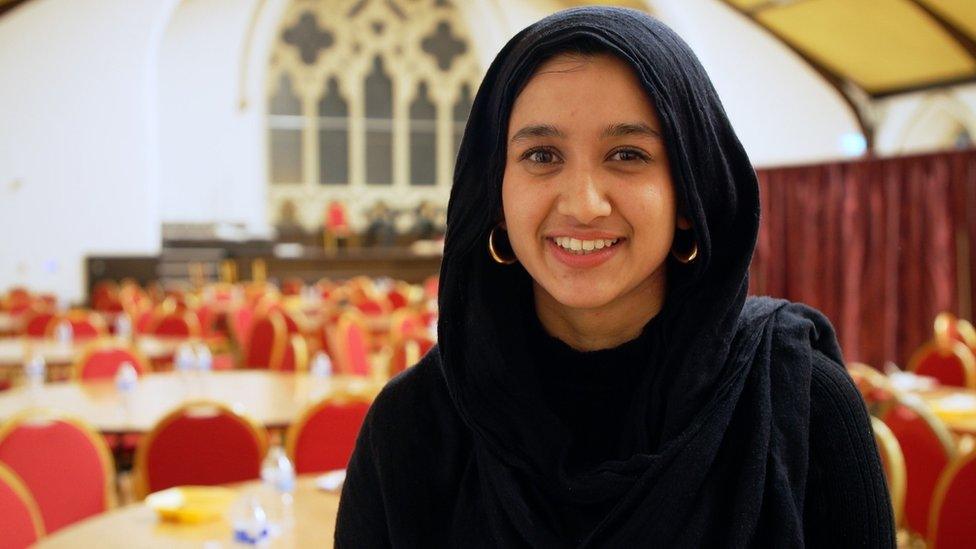
- Published6 May 2021
